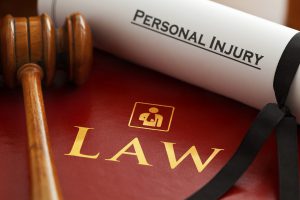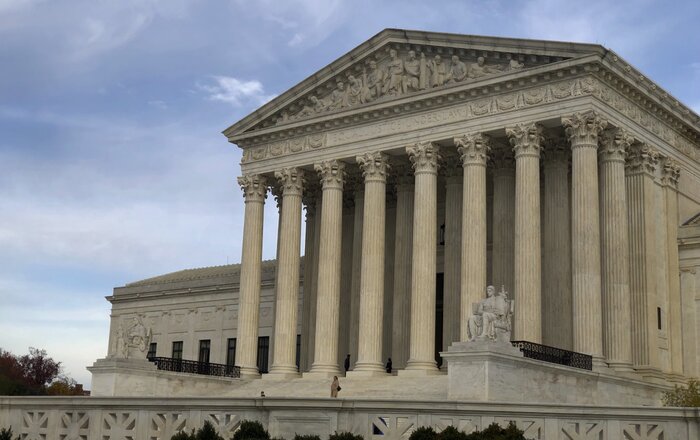Written By:
 Adam H. Rosenblum
Adam H. Rosenblum
Your Dedicated & Trusted Legal Team
3 Generations & 100+ Years of Combined Legal Experience

The risk of an injury is just part of our daily lives—but when does an injury become a “personal injury” in the legal context? There are numerous types of situations that can lead to personal injuries and which would allow the victim to pursue legal action and obtain the compensation he or she deserves.
What is considered a “personal injury”?
Personal injury can include accidents, illnesses, or trauma that affect the physical or psychological status of the person in question. It is important to understand that the type of injury, as well as its extent, will determine the seriousness of each case. For example, there are situations in which both physical and psychological injuries have occurred; thus, the person in question can pursue legal action and request a higher compensation.
Most personal injury claims are the result of traffic accidents. However, the term has become increasingly used for medical malpractice, slip-and-fall cases, workplace and holiday accidents, usage of faulty/defective products and even criminal injuries. There are cases where work-induced chronic stress can be considered a form of personal injury. The term also applies to illnesses and diseases; for example, it can be used for occupational hazards, such as the exposure to asbestos or if someone has become ill during a holiday (food poisoning).
What are the most common types of personal injuries?
Car accidents. Despite the ever-increasing amount of safety features in today’s vehicles, accidents involving vehicles and pedestrians still occur which cost lives or lead to serious injuries. Human error remains a primary factor in such cases. Someone who has sustained injuries as a result of a road accident can file a personal injury lawsuit. This requires the assistance of a specialized lawyer will help determine the appropriate compensation amount and argue the case in court.
Work-related accidents and illnesses. All workplaces present certain risks, ranging from exposure to potentially harmful substances to chronic stress. Health and safety regulations are meant to reduce such risks and ensure that employees can work in a safe environment. However, there is no way to eliminate these risks completely, especially if the employer has failed to respect or enforce safety measures. Whether the personal injury is the result of an accident or occupational hazard (see below), a lawsuit can be filed for compensation.
Medical negligence. Medical negligence cases are more common than one might think, especially when it comes to surgical interventions. Doctors are human, which means they make mistakes. Unfortunately, such mistakes can lead to both physical and emotional damage, and in some cases permanent disabilities and emotional distress. Financial compensation can be requested and, in extreme cases, a lawsuit can be filed in criminal court.
Transport. Personal injuries can also occur while taking public transportation (bus or train) or while in a taxi. This can happen when a train derails or if a taxi is involved in an accident with passengers inside. If professional negligence was involved, proper safety measures were not respected or if the vehicle was not up to code, the victim could also claim financial compensation.
Industrial diseases (occupational hazard). Although technically considered a work-related injury, this deserves its own entry. Prolonged and constant exposure to substances that are either hazardous or toxic can lead to the appearance of chronic conditions. These are known as industrial diseases, and they can have an adverse impact on the overall quality of life (reduced life expectancy and disability). If a company fails to provide adequate care and protection, those who are affected are entitled to demand financial compensation for any illnesses that result. Common claims involve conditions such as asbestosis, industrial deafness, lung cancer, mesothelioma, and dermatitis.
Other types of personal injuries
- Accidents and illnesses that occur while traveling – sustaining physical and psychological injuries due to someone else’s fault (car accident, cruise ship accident, assault, illness, etc.);
- Crime and abuse – victims of an offense or ill-treatment are entitled to financial compensation; this is valid for physical and psychological injuries, and the case can also be tried out in criminal court;
- Faulty products – sometimes a personal injury is the result of a faulty or defective product. This can include anything, such as furniture, electric goods, vehicles, food, medication and even medical devices (pacemaker);
What should you do if you sustain a personal injury?
If you have sustained a personal injury, your first course of action is to find a lawyer with experience in the field. Together, you can obtain the financial compensation you deserve for the injuries or trauma you have sustained. And, remember, compensation can be of great service, allowing you to cover medical expenses and other needs.
ABOUT THE AUTHOR
Rosemary Jones is a professional blogger who loves to write on several niches particularly in law, including personal injury, estate planning, business law, real estate law, construction law, criminal defense law and DUI law. Read more about her blog posts on Band Gates & Dramis.
 Adam H. Rosenblum
Adam H. Rosenblum
About The Author
Adam is the founding attorney and principal of Rosenblum Law. With more than two decades of legal experience in numerous areas of law practice, his primary focus is law firm management and business development.
Read MoreLatest from Our Blog



Editorial Standards
Rosenblum Law is committed to delivering informative content of the highest quality. All content is subject to our rigorous editorial standards for relevance, accuracy, sourcing, and objectivity. Everything is fact-checked by an editor and reviewed for legal soundness by one of our practicing attorneys prior to being published.
How to Cite Rosenblum Law’s Article
APA
Adam H. Rosenblum (Aug 27, 2010). Politician Who Collects Votes…And Speeding Tickets. Rosenblum Law Firm, https://rosenblumlaw.com/politician-who-collects-votes-and-speeding-tickets/
MLA
Adam H. Rosenblum "Politician Who Collects Votes…And Speeding Tickets". Rosenblum Law Firm, Aug 27, 2010. https://rosenblumlaw.com/politician-who-collects-votes-and-speeding-tickets/





